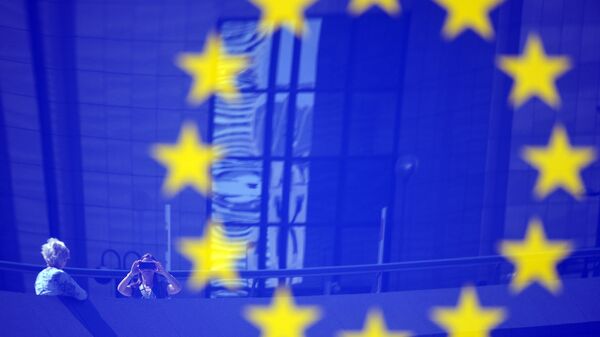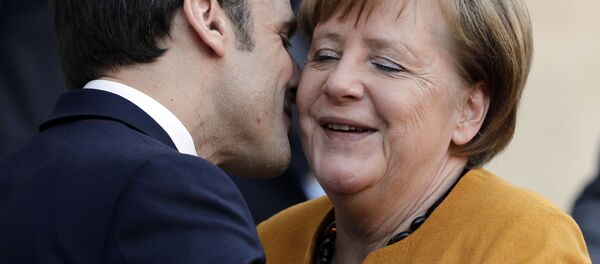On Thursday, the UK government tasked civil servants with developing a new plan, codenamed Project Defend, to be less dependent on China.
The project will be led by Foreign Secretary Dominic Raab and consists of two separate groups of officials that have been tasked with ensuring that the UK will not be reliant on one single country for the import of strategic goods.
The two leaders called for greater EU sovereignty over the production of medical equipment and pharmaceuticals. They proposed establishing a so-called Recovery Fund, which would provide 500 billion euros ($550 billion) in EU budget spending to support the sectors and regions that were hit hardest. The bloc is yet to reach a consensus on how to fund the economy reboot.
Almost half of the global cases of COVID-19 have been reported on the European continent, as the European Centre for Disease Prevention and Control announced that 1,773,658 cases of the disease, as well as 166,580 deaths have been reported in the EU, countries of the European Economic Area and the UK.
Reindustralisation of Europe
Last month, the French government ordered more than 2 billion masks from China, as the pandemic situation was becoming direr. Paris also pledged to ramp up its own production of personal protective items due to the acute shortage.
The hardest-hit EU countries have denounced the dependence on other countries as the reason for the initial difficulties of combating the coronavirus internally.
"I fear that we are witnessing a lot of political gesticulation, about ‘re-industrializing Europe’ during this crisis. It is obvious that governments must ask themselves questions of security and public health for essential supplies. It is also true that the liberal policy of globalization has caused Europe to de-industrialize to the benefit of emerging countries which have since become economic giants or the workshop of the world, such as China," Michel Liegeois, a professor at the Belgium’s University of Louvain, told Sputnik.
According to Liegeois, the European Union could potentially introduce tariffs on imports from China, but that would lead to immediate retaliatory measures by China.
According to Matteo Volpe, sales director for DomusLift – IGV Group, a large producer of lifts in Italy, "the EU and the national governments have led a policy of laissez-faire, which has resulted in endemic unemployment of low-qualified workers in Europe, since most of the production has been sent to Asia, to reduce costs. Overproduction of the workers has increased labor costs that have pushed companies to delocalize to China."
Reindustrialisation initiatives, similar to the UK’s Project Defend, will certainly be taken to the parliamentary debates, while proposals made by the Left and Right parties in many European countries would not be immediately qualified as strategic.
What Economists Have to Say
Commenting on repatriating industries and reindustrialisation in Europe, French economist Charles Gave told Sputnik that gaining independence from China would carry a high cost.
"A return to self-sufficiency in Europe would have a cost. Some might try to repatriate pharmaceutical production from India or China, but the costs in Europe are much higher: wages, taxes, social security, binding standards. Even for a very robotized factory, this is not easy. If there is a relocation from China, the manufacturer will prefer to set up the new factory in Vietnam or Ukraine, for example. It is not a zero-sum game," Gave said.
According to the economist, keeping industries in China is more profitable as labor costs, environmental requirements and lower security standards are less demanding than those in the EU.
"And paradoxically, the departure of China could increase the globalization of the economy; by dispersing production units elsewhere, from Asia to North Africa. In addition, China could outsource the factories it controls from home to other countries: China could set up a factory in Thailand, or Portugal for example," Gave suggested.





